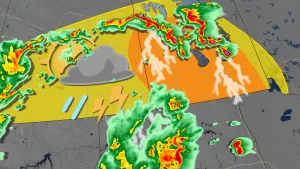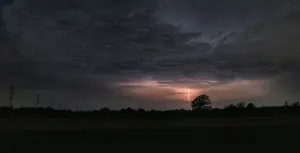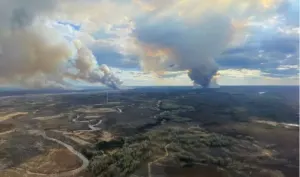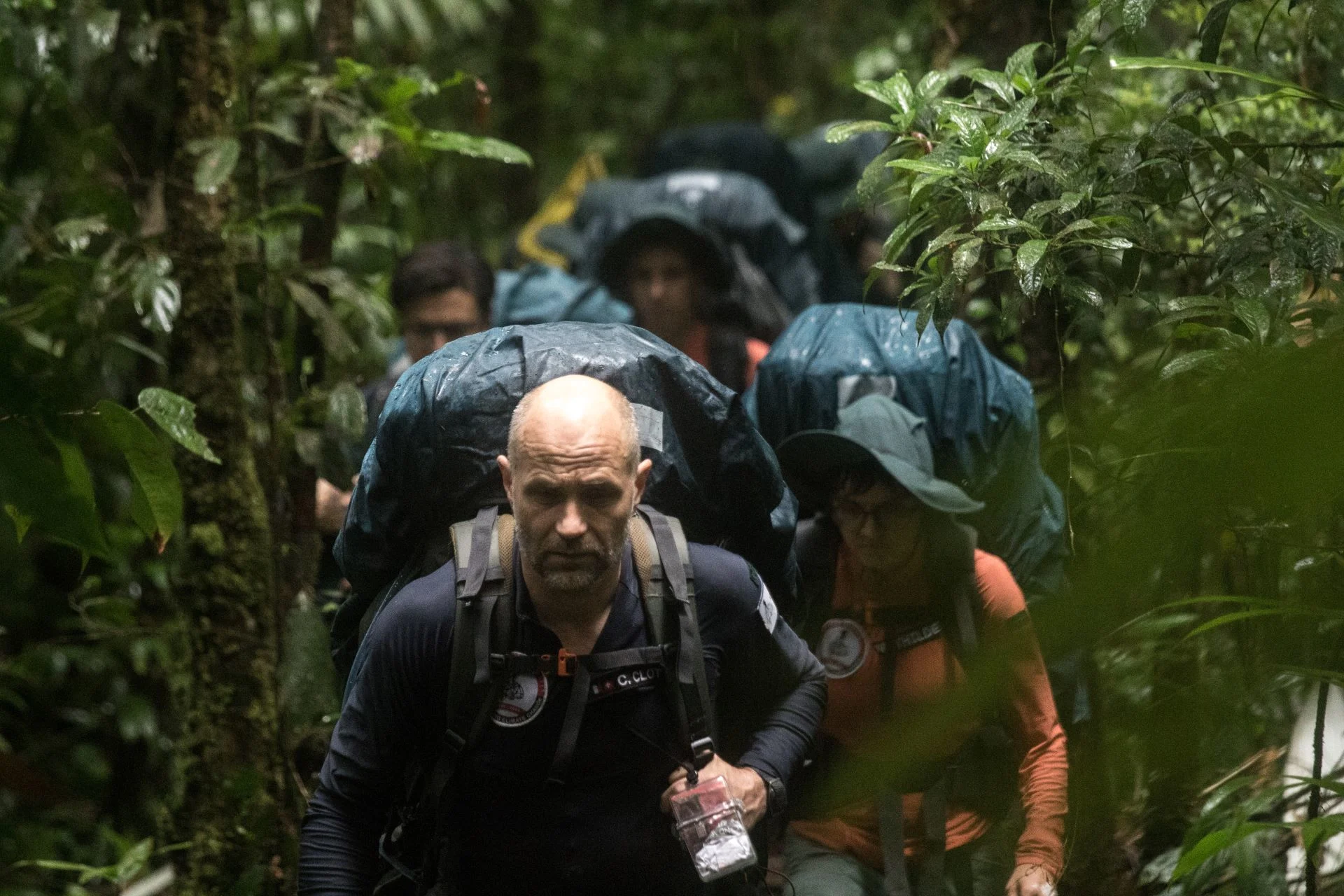
Testing the limits of human adaptability to climate extremes
To better understand how humans adapt to new living conditions under climate change, 20 explorers will experience extreme heat, humidity, and cold in a series of scientific expeditions as part of the Deep Climate project.
In 2021, as most of humanity was becoming unfortunately familiar with confined situations, you might remember a unique story crossing your feed about people living underground in a cave for 40 days for science.
That was the Deep Time project, conducted by the Human Adaptation Institute. Their objective was to experience life without the usual indicators of time (no sun, but also no watches or time devices of any kind) and understand how a group of people adapts and collaborates in radically new living conditions. The explorers-researchers of the Human Adaptation Institute are back at it with a new project dubbed Deep Climate. The Weather Network spoke with Christian Clot, president of the institute and leader of the expedition to find out more.
“The aim of Deep Climate is to try to understand how human beings can adapt to new kinds of living conditions. We will have more and more new living conditions in the future because of climate change of course, but also because of things happening like the war in Russia and Ukraine, or like COVID. All these situations push us to suddenly live a bit differently than before. And the question is how our brain, how our physiology is able to adapt to these new living conditions.” Clot explained.

Deep Climate team kayaking. (Lucas Santucci/ Human Adaptation Institute)
We spoke right after the first leg of the Deep Climate journey, which took 20 ordinary people into the rainforest of French Guiana for the wet and humid segment of the experiment. The team is composed of scientists and health-care professionals, but also people from a range of occupations and backgrounds. None were trained to work in the extreme conditions they encountered — that’s part of the experiment.
The team of “climatonauts” is closely monitored throughout each 40-day trip and data is collected on how they adapt physically, mentally and socially. In Guiana, they had to hike, climb, and raft in the rainforest in high heat and 100 per cent humidity.
“So we were wet all day, all night, always wet. It was interesting because at the very beginning of the expedition, everybody was trying not to be wet. You know, trying to protect themselves, to not to put their feet in the water,” Clot explained. “After four, five days, it's just impossible to be protected. So, OK, I will accept the rain and I will accept being wet. It's OK. And the moment people do that, their life is much better because they can focus on something else.”
READ MORE: Heat waves, floods, droughts more extreme now due to climate change
Acceptance is a key step of adaptation, according to Clot’s findings. More than someone’s physical capacities, successful adaptation is determined by how quickly someone embraces their new circumstances, which has to happen before a person can make new plans and change accordingly. The quicker you accept being wet, the faster you’ll stop being miserable about it.
Clot believes we have grown too accustomed to negotiating with nature, taming it through technology to the point where we expect it to adapt to our needs and wants. With climate change, humanity has reached the limits of what it can control and finds itself forced to change, but many people are unable to get out of this negotiating stance and into acceptance.
“We see the energy crisis, we won’t be able to keep pumping more oil to bring more heat and AC into our homes. We will have to accept that our living conditions will be more and more dictated by the weather, the climate. Whether we change voluntarily or feel like we don’t have to, we will have to adapt. So better to do it willingly, it’s simpler and we get to exert some control over the change, rather than resist and suffer through the change, making it much more painful.”
The second key when adapting as a group is co-operation. According to Clot, “a human being alone is slow to adapt to a new condition, but a group of people can be really quick. Because there’s co-operation, there’s all the things that a human can give to another when we work together.”
The team had to collaborate not only to cross the difficult terrain, but also to conduct a battery of tests and experiments, and they also had to keep it together when progress became more difficult. The necessity to work together for success and survival made it easier to be adaptable — they just did not have a choice.
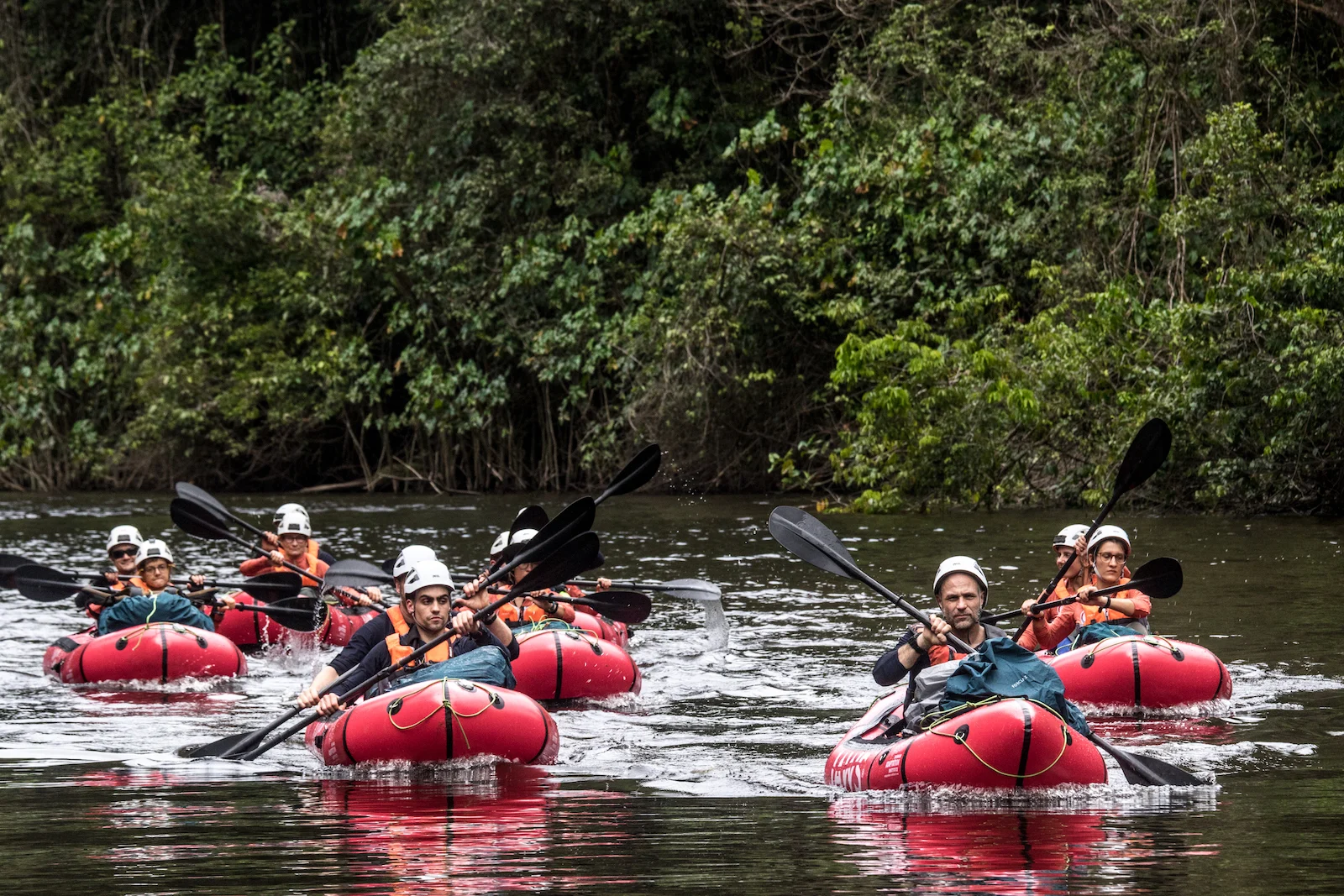
The Deep Climate team had to hike, climb and raft through the rainforest for 40 days in extreme heat and humidity. (Lucas Santucci/ Human Adaptation Institute)
But adaptation does not happen without the final secret ingredient: wonder. In the Deep Time experiment, participants reported that their underground life got better once they were allowed to explore the cave. The beautiful and fascinating things they discovered balanced out the difficult living conditions they endured. Similarly, in the rainforest, the climatonauts were motivated by the beauty of their environment.
WATCH BELOW: Meet the first women to overwinter alone this small Arctic hut
Beauty and wonder is not just a distraction when you’re tired of hiking. It goes a little deeper than that, in Clot’s experience.
“When you have to adapt, you need to think about your own future. Why do I have to change, and how will I change? I need to change because I think there’s something nice after, in the future. This idea needs to be something you like. If everything is bad in the image you have of the future, why would you fight to go there?”
The next leg of the Deep Climate journey will take the team to northern Finland, where they will venture into the polar circle for 40 days of biting cold, but also stark icy beauty and aurora borealis. Clot apprehends frostbites, but says the team has a bit more experience with the cold and will take all precautions to avoid injuries. Still the relentlessness of cold temperatures, with no refuge to warm up at night, should test the team’s adaptability. For their final 40-day trek, they will go into the desert of Saudi Arabia to experience the exact opposite, the hottest and most arid climate on earth.
At the end of the experiment, Clot hopes the wealth of data they accumulate will empower researchers to come up with new strategies that will help us all adapt to future climate conditions.
“The role of an explorer is to try to understand new things, to discover new knowledge, and to go back to explain to others and help to increase the knowledge of humanity. It's what we are as human beings. We are all explorers.”
Thumbnail image: Christian Clot leading the team of climatonauts through the rainforest. (Lucas Santucci/ Human Adaptation Institute)








